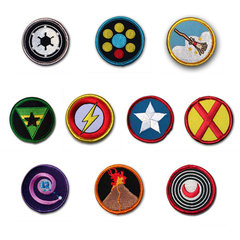 As near as I can tell, there were two main wifi networks at the San Diego convention center this year: “Comic-Con 2010” was open and free…and bogged down. It was enough to post snippets of text one line at a time, but it took forever to start the console for Cover it Live, though, and it wasn’t worth it for uploading photos.
As near as I can tell, there were two main wifi networks at the San Diego convention center this year: “Comic-Con 2010” was open and free…and bogged down. It was enough to post snippets of text one line at a time, but it took forever to start the console for Cover it Live, though, and it wasn’t worth it for uploading photos.
AT&T also had a wireless network, but it required you to either be a customer already or buy access. One of the perks of U-Verse service: free access to AT&T wifi hotspots! Since only paid customers were using it, it was a lot faster. Faster even than our home internet access, in fact.
This was in the lobby, hallways and meeting rooms at the convention center itself. I never really tried to access wifi on the exhibit floor (who has room to sit down, other than people staffing a booth?), and didn’t spend much time on my phone either, except for sending and receiving text messages.
Over at the Hilton, however, access was virtually nonexistent: No wifi as near as I could tell, and even phone access was spotty. I saw people texting in the Indigo Ballroom, but the ones nearby were all on iPhones (AT&T) or Verizon. I had absolutely no T-Mobile signal in that hotel, even though it was perfectly fine everywhere else. Katie had the same problem at Indigo last year, and we were hoping it might have improved. No dice.**
One reason I didn’t worry too much about having constant net access: I spent way too much time last year online. Liveblogging aside, this year I wanted to focus more on actually being there. Last year I posted about 30 messages a day to Twitter. This year it was closer to 10 posts total.
So of course, now I’m spending lots of time after we get back writing things up…online.
*Yes, I know the photo is of a cell phone tower, not a wifi hotspot, but I didn’t take any pictures of wifi routers and this is the next best thing.
**Actually, there was a whole booth full of dice, but it was over on the main floor.
»Full index of Comic-Con posts and photos.


